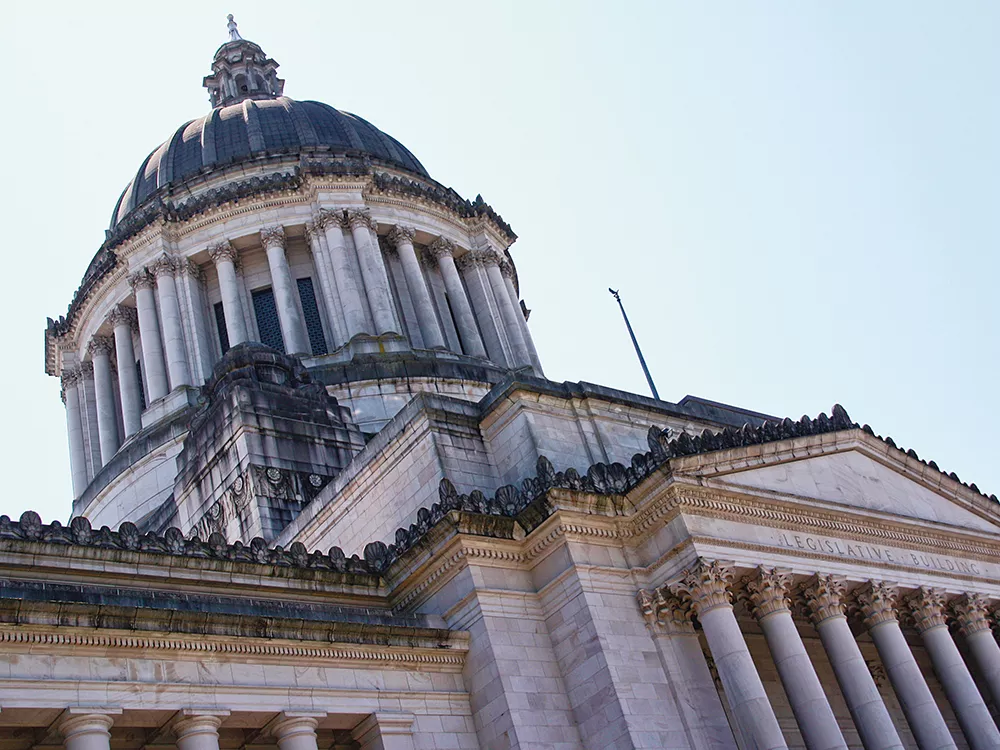After 153 days of partisan gridlock, Gov. Jay Inslee signed a new two-year budget on Sunday afternoon, averting a government shutdown on July 1 that would have shuttered dozens of state agencies and cost tens of thousands of public workers their jobs.
Not since 1991 have budget negotiators reached an agreement so close to their midnight deadline.
Inslee and party leaders lauded the $33.6 billion budget compromise for making big investments on public schools and higher education. But others, including analysts from the Washington State Budget and Policy Center, have criticized the spending plan as a “Band-Aid” solution to the state’s financial obligations and for making cuts to a variety of public programs.
Here’s a look at how Washington’s stakeholders fared after the final round of budget negotiations.
WINNERS
Public education: The new budget makes a $1 billion down payment on K-through-12 schools in an effort to fulfill last year’s state Supreme Court mandate to amply fund basic education by 2018. More than a third of that money will go toward school supplies and operating costs. The rest will be used, among other things, to increase teaching hours, reduce early elementary class sizes, fund more guidance counselors and expand bilingual instruction for kids struggling with English.
College kids: Washington’s undergraduates will enjoy frozen tuition rates for at least one year in addition to $119 million in funding for the state’s public colleges. The new budget also invests $36 million in College Bound Scholarships for low-income middle school students and $18 million to expand computer science and engineering programs at the University of Washington and Washington State and Western Washington universities.
Medicaid recipients: Despite hand-wringing from a few state Republicans, the new budget expands Medicaid under President Obama’s Affordable Care Act, which lawmakers estimate will save the state $318 million and provide more than 250,000 low-income people with health coverage.
Medicaid recipients’ teeth: Funding for dental services for Medicaid-eligible adults is restored to the tune of $23 million.
Beekeepers, dance halls and clay target shooters: Republicans and Democrats approved 16 tax breaks worth $13 million as part of the broader budget agreement, benefiting an array of different industries and businesses: Temporary tax exemptions were extended for apiarists due to concerns over colony collapse disorder. Nonprofit gun clubs will get a sales tax exemption for buying clay targets. Dance venues will no longer be subject to retail sales tax on cover charges.
Spokane Public Radio: The new $3.6 billion capital budget allocates $1 million to help the National Public Radio affiliate move out of its cramped Monroe Street location and into a turn-of-the-century, 9,000-square-foot brick building on Pacific Avenue downtown.
Giant saltwater mollusks: For $265,000, the state will create the Geoduck Harvest Safety Committee to help establish a safety programs for divers scavenging Washington’s inland waterways for geoducks, the world’s largest burrowing clams, which the Department of Fish and Wildlife has dubbed the “most impressive” in the Pacific Northwest.
Sex-trade victims: The Department of Commerce was given $72,000 to coordinate a statewide committee and create a plan for the Legislature and governor to end sex trafficking.
LOSERS
Teachers’ salaries: For the third year in a row, lawmakers suspended annual cost-of-living raises for school employees, a measure voters approved 13 years ago by ballot initiative. The savings are worth $320 million.
Infrastructure: About $277 million was transferred out of the state’s Public Works Assistance Account, meaning there will be fewer funds available to support sewer, water and other development projects.
Poor, unemployed parents: Although the budget increases base rate funds for subsidized child care, it reduces, instead of reinvesting, $156 million in unspent funds in WorkFirst and Working Connection Childcare — welfare reform programs that help low-income adults find and keep jobs in addition to paying for child care — by assuming smaller caseloads.
Homeless people with disabilities: The Housing and Essential Needs program, which helps disabled people who are homeless or at risk of homelessness cover their rent, utilities and personal care, will lose $20 million in funding.
Invasive species: A one-time $500,000 award was given to the Department of Natural Resources to eradicate “noxious weeds,” non-native grasses, flowering plants, shrubs and trees wantonly growing in Washington.
Smokers: Public employees on state health insurance plans will be charged an additional $25 per month for smoking.
The description of effects for unemployed parents has been clarified from an earlier version of this story.



















